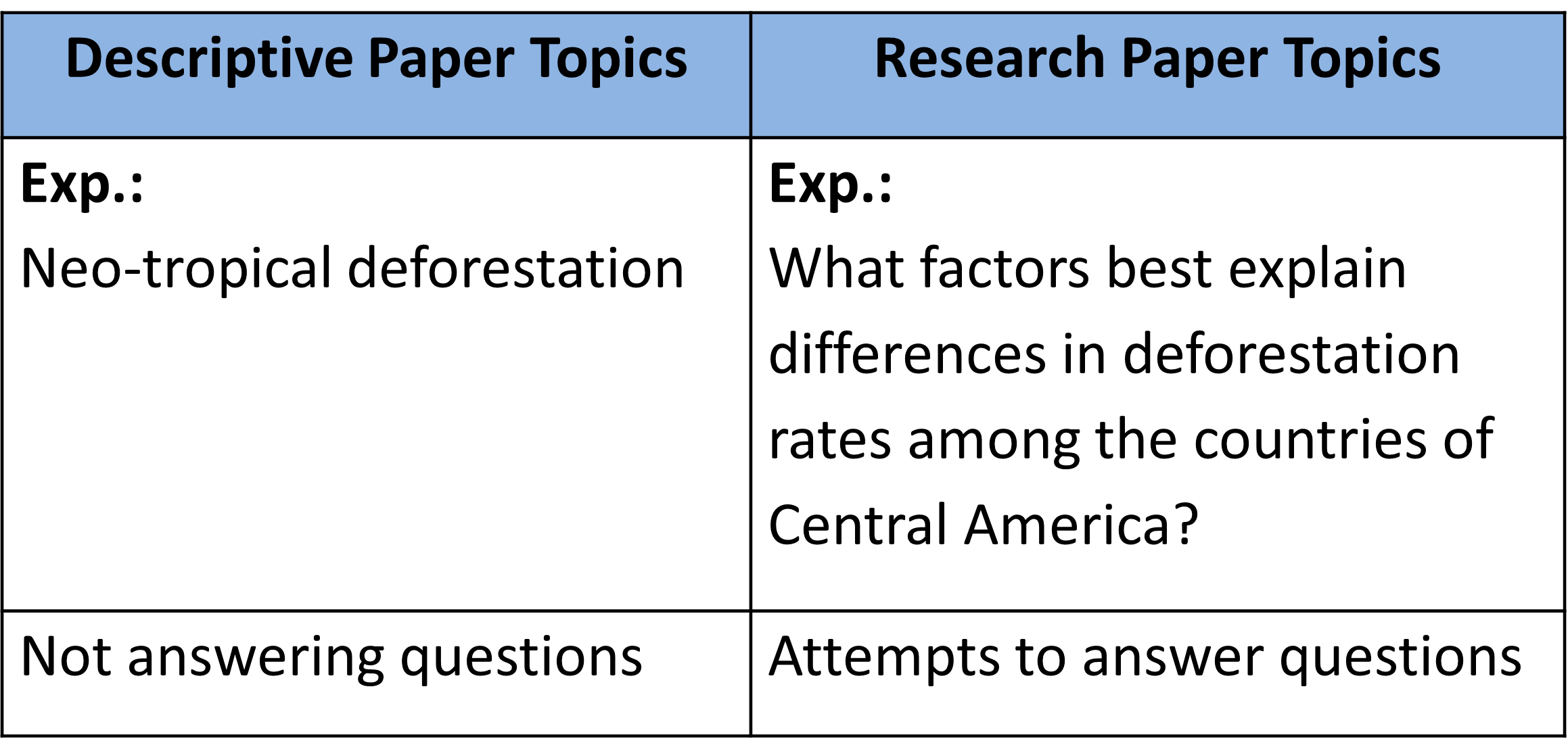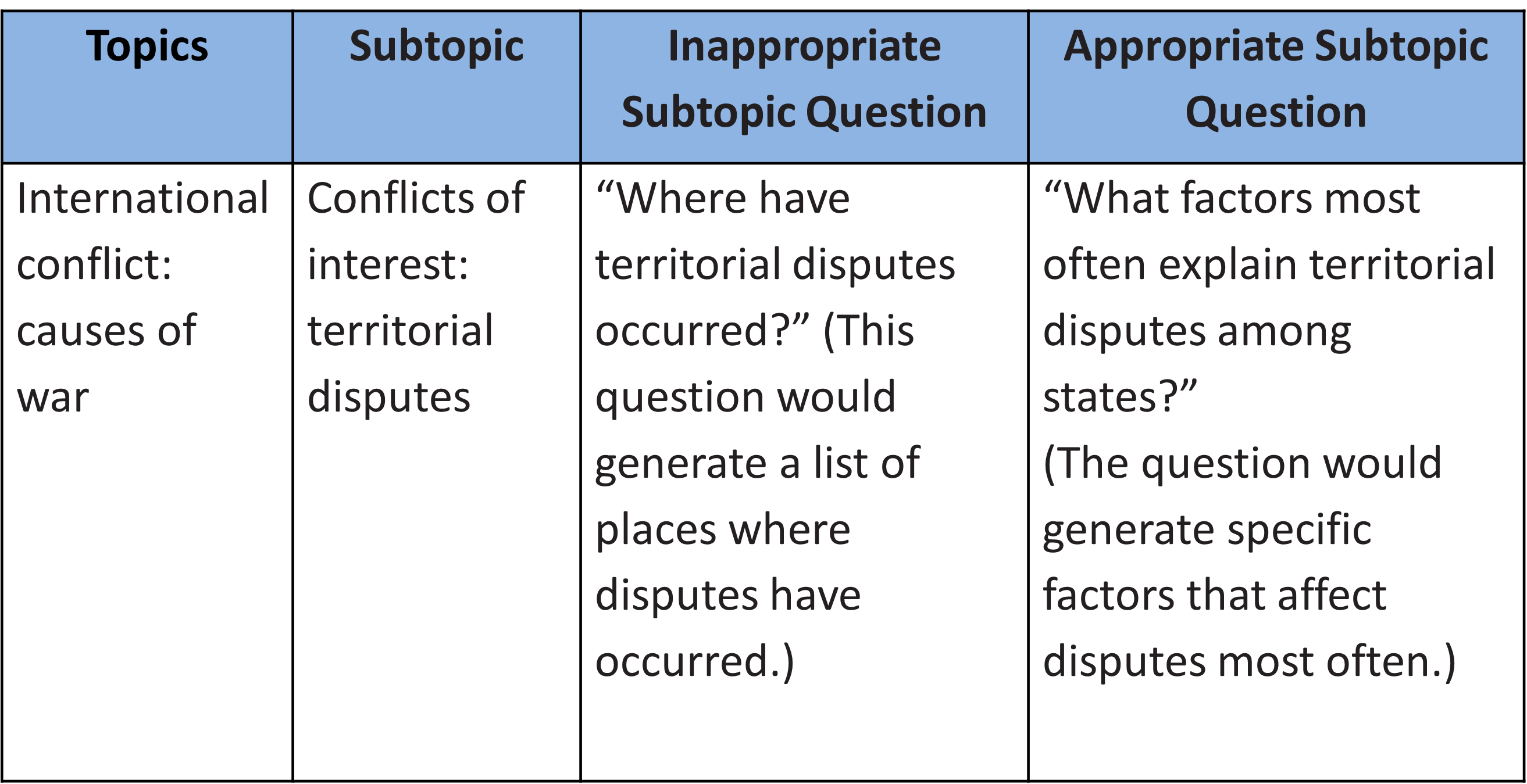Research Question
The Importance of the Research Question
The research question is the fundamental core of a research project. It serves as the foundation on which the entire study is constructed. A clearly defined research question guides the researcher in multiple aspects of the study including determining the research design, methodology, data collection procedures, and analysis techniques.
The research question identifies the primary aim and objectives that the study intends to address. It delineates the scope and provides direction for all stages of the research process. A well-formulated research question allows the researcher to determine the type of data needed, the approach to data collection, and how the information will be analyzed. It enables the researcher to stay focused on the main goals of the project throughout its duration.
A well-crafted research question:
- Defines the purpose and focus of the research project
- Guides the research methodology and data collection
- Helps determine the scope of research and resources required
- Provides direction for data analysis
- Structures the final research report
In essence, the research question is the compass that steers the research ship towards its destination. It keeps the study on course and prevents deviation into tangential issues. All parts of the research plan from literature review to data interpretation should tie back directly to the central research question. A clear, concise, and thoughtful research question sets the stage for a successful research endeavor.
Research Question vs. Thesis Statement
A research question and thesis statement have fundamental differences:
- A research question asks about a problem or issue to explore. It identifies the purpose and goals for a research project. The question lays the foundation for the research by guiding the methodology and data collection.
- A thesis statement, on the other hand, makes an argument and directly answers the research question. It is a concise statement that summarizes the central argument or claim of the paper. The thesis provides the direction and focus for the entire work.
- In short, the research question asks what needs to be studied, while the thesis statement answers the research question with an argument and analysis. The research question comes before and helps develop the thesis statement.
- For example, the research question may ask “Why did comics become darker in the 1980s?” After conducting research, the thesis statement would answer with an argument like “Comics became darker and more violent in the 1980s as writers expressed the cultural anxieties of the Reagan era.” The thesis makes a specific claim supported by evidence to answer the broader research inquiry.
- A research question guides the research process, while a thesis statement presents the conclusion of that research. The research question lays the foundation, while the thesis statement builds the house.
Good Research Question
A good research question should:
- Be clearly linked to the overall research project goal. The question should directly relate to the purpose and aims of the research. If the research aims to explore a certain phenomenon, the question should address that phenomenon.
- Allow the target population to be identified. The question should indicate the specific group or subject to be studied. This helps determine the data sources needed and scope of the research.
- Guide the appropriate data collection method and analysis. The question gives direction on how to obtain the relevant data and the type of analysis required. It influences decisions about the research design, such as whether interviews, surveys, or experiments are needed.
- Identify the outcome variables and key predictors. The question points to the key factors and relationships to be measured and examined. This shapes how data is collected and analyzed.
- Determine the scope and sample size needed. The specificity of the question indicates the breadth of data required and appropriate number of study participants. Broader questions require larger samples.
- Raise additional questions about methodology. The question prompts thinking about the optimal ways to gather data and conduct the investigation. This guides choices made about specific research methods and tools.
Choosing Topics Appropriate to International Relations Research
Research Topics in International Relations - Overview
International Relations (IR) is a diverse field that examines relationships between countries, interactions between governments, the role of international organizations, and the political dynamics between state and non-state actors. Some of the key topics examined in IR research include:
- International security - Issues related to war, conflict, arms control, terrorism, etc.
- International political economy - Trade, development, monetary policy, globalization, multinational corporations, etc.
- Theories of power - Realism, liberalism, constructivism, Marxism, etc.
- Foreign policy - How countries conduct diplomacy and make foreign policy decisions.
- International conflict - Causes, escalation, management, and resolution of conflicts.
- Military force - Strategic studies, nuclear weapons, asymmetric warfare.
- Trade - Barriers, agreements, organizations like WTO, effects on development.
- International organizations - United Nations, regional bodies, treaty regimes, non-governmental organizations.
- International law - Laws governing state behavior, human rights, the environment, outer space, etc.
- International development - Aid, sustainability, poverty reduction, microfinance, etc.
- North-South relations - Interactions between developed and developing countries.
Example of The Differences Topics in Descriptive and Research Paper

Writing an Initial Subtopic Question
The initial question is needed to guide preliminary, foundation-building research. Question-based research papers seek to unravel the puzzles associated with not readily apparent cause-and-effect relationships. When writing the initial research question, keep the following guidelines in mind:
- Focus the question - Make sure the question is specific enough to guide focused research but not so narrow that you won’t find enough information.
- Avoid simple process/description questions - Don’t ask questions that would result in projects that simply describe a process, an event, or terminology. For example “How do global markets operate?” or “What is comparative advantage?”.
- Ask a why or how question - Asking why or how something occurred leads to uncovering cause-and-effect relationships which make for more insightful research. For example “Why do states use trade barriers?” or “How do global markets benefit developing countries?”.
- Consider scope - Make sure the scope of the question is reasonable for the length of the intended research paper. Don’t take on questions better suited for a dissertation if you are writing a class paper.
- Point towards analysis - Choose a question that requires analytical thinking to answer rather than just gathering descriptive information.
- Spark your interest - Pick a research question you are genuinely curious about and interested in studying further. Your passion will show in the final paper.
Example
